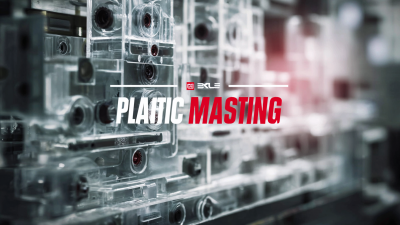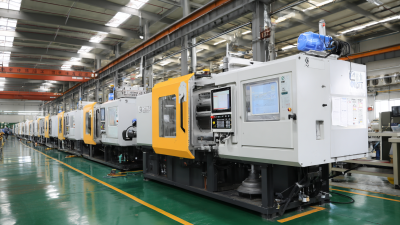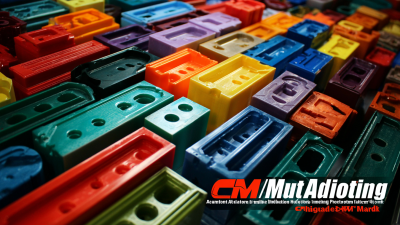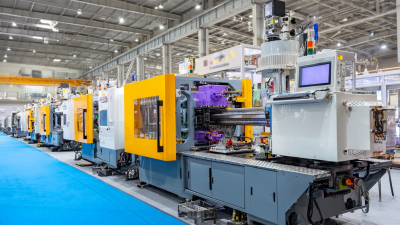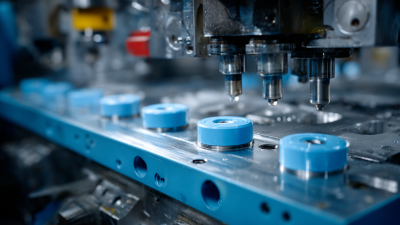In the rapidly evolving automotive industry, the demand for high-quality components is at an all-time high, with the global automotive injection molding market projected to reach $42.18 billion by 2027, growing at a CAGR of 6.8%. The significance of selecting the right injection molding automotive supplier cannot be overstated, as their capabilities and reliability directly impact production efficiency and product quality. As automotive manufacturers increasingly seek lightweight, durable materials to enhance vehicle performance and fuel efficiency, partnering with a proficient supplier who understands the intricacies of injection molding processes becomes paramount.
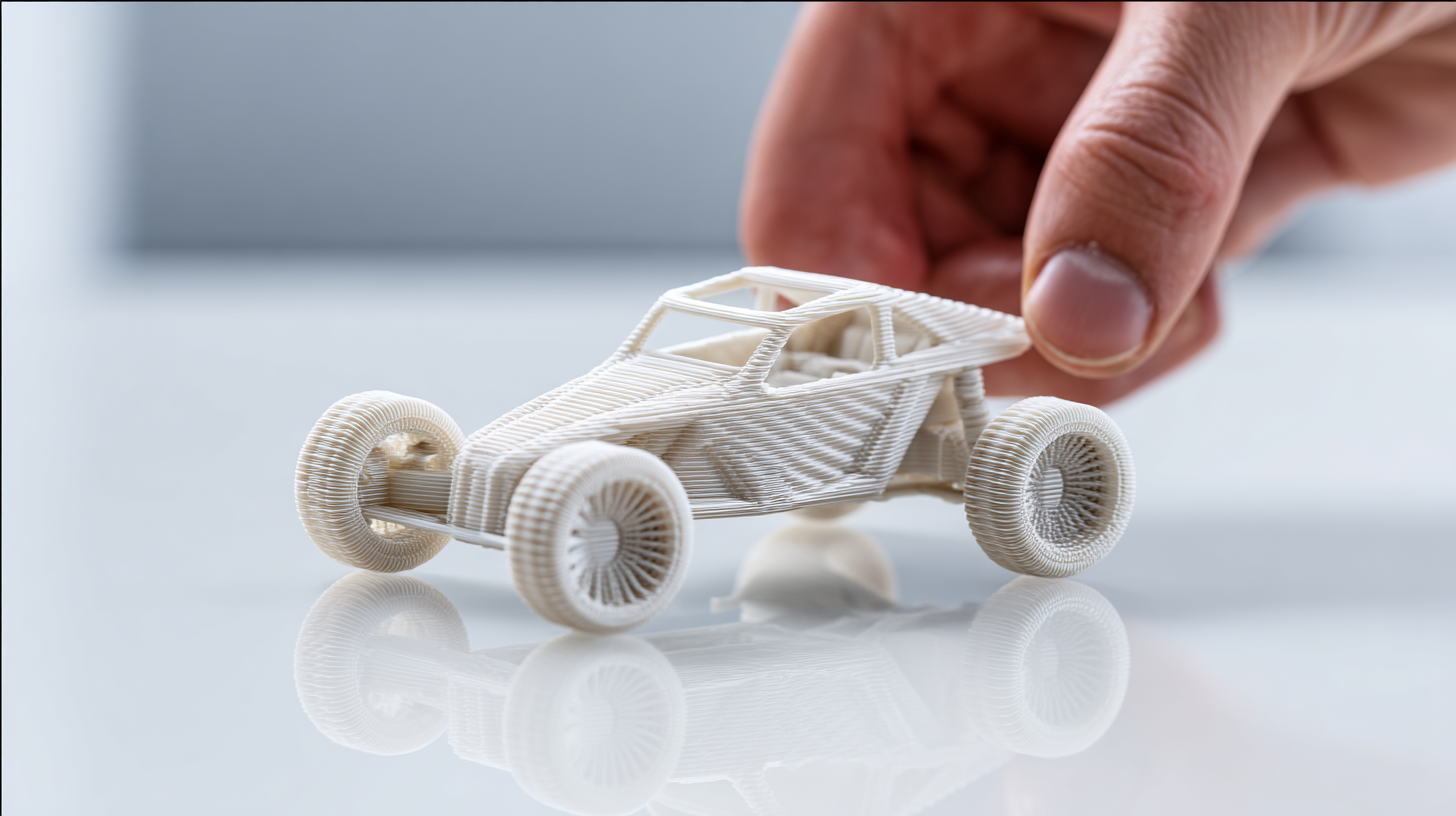
This blog will guide you through essential factors to consider when choosing an injection molding automotive supplier that aligns with your production needs and strategic goals.
The injection molding process plays a crucial role in the automotive industry, allowing manufacturers to create complex and precise components efficiently. This method involves injecting molten plastic into a mold to produce parts such as dashboards, bumpers, and interior panels.
The process begins with the selection of high-quality materials tailored to specific automotive applications, ensuring durability and performance under various conditions. Understanding the characteristics of thermoplastics and thermosetting plastics is essential to achieving the desired properties for each part, such as impact resistance, weight reduction, and cost-effectiveness.

Moreover, the intricacies of the injection molding process require close attention to design and engineering. Advanced techniques, such as computer-aided design (CAD) and computer-aided manufacturing (CAM), are employed to optimize mold design and ensure precision in production.
Suppliers must possess the capability to conduct thorough testing and quality assurance, which are critical for meeting stringent automotive industry standards. By understanding the injection molding process and its applications, companies can make informed decisions when selecting the right supplier, ultimately ensuring the success of their automotive projects.
When selecting an injection molding supplier for automotive needs, several key factors should guide your decision. First and foremost, assess the supplier's experience and specialization within the automotive sector. According to a report by Grand View Research, the automotive plastics market is expected to exceed USD 40 billion by 2025, indicating a growing demand for expertise in this area. An experienced supplier will not only understand the specific requirements of automotive components but also navigate the regulatory standards inherent in the industry.
Secondly, consider the technological capabilities of the supplier. The introduction of advanced materials and manufacturing technologies, such as Industry 4.0 and automated production processes, plays a significant role in ensuring quality and efficiency. A survey by the Automotive Industry Action Group found that 90% of automotive manufacturers prioritize partnerships with suppliers who employ innovative technologies. Therefore, it is crucial to evaluate the supplier's equipment, production methods, and ability to innovate to meet your unique needs effectively. This ensures a partnership that can adapt to future challenges and maintain a competitive edge.
| Criteria | Importance Level | Evaluation Method | Comments |
|---|---|---|---|
| Experience in Automotive Industry | High | Review past projects and client testimonials | Look for at least 5 years of relevant experience |
| Quality Certifications | Medium | Check for ISO/TS 16949 certification | Certifications indicate adherence to quality standards |
| Production Capabilities | High | Assess available machinery and technology | Ensure they can handle your volume needs |
| Lead Times | High | Request production schedules | Evaluate their capacity to meet your deadlines |
| Cost Competitiveness | Medium | Obtain and compare quotes | Consider total cost of ownership, not just price |
| Customer Support | Medium | Evaluate communication styles and responsiveness | Responsive support is crucial for project success |
When selecting an injection molding automotive supplier, a critical aspect to consider is the supplier's technical expertise and equipment quality. According to a recent report by Allied Market Research, the global injection molding market is projected to exceed $450 billion by 2027, highlighting the growing importance of selecting the right partner in this competitive landscape. Suppliers with strong technical capabilities can significantly enhance manufacturing processes, from initial design to final production, ensuring that components meet stringent automotive standards.
The quality of equipment used by a supplier is equally essential. A study by MarketsandMarkets indicates that state-of-the-art injection molding machines can improve productivity by up to 30% and reduce material waste by 15%. Innovative technology such as automation and IoT integration can optimize production efficiency and ensure consistent quality in automotive parts. When evaluating potential suppliers, it's crucial to assess their investment in advanced machinery and their commitment to continuous improvement in both technology and skills. This approach not only mitigates risks but also fosters a partnership that leverages cutting-edge capabilities in the fast-evolving automotive sector.

When selecting an injection molding automotive supplier, assessing their reliability is paramount. Delivery times play a crucial role in maintaining production schedules; thus, you should investigate how the supplier manages their logistics. Look for suppliers who provide clear timelines and who have a proven track record of on-time deliveries. Request data on their historical performance and have them outline their strategies for handling potential delays. A supplier who can demonstrate consistent punctuality is more likely to help you meet your production deadlines, enhancing your operational efficiency.
Equally important is the quality control metrics employed by the supplier. High-quality components are non-negotiable in the automotive industry due to safety and compliance standards. Ensure that the supplier has a robust quality assurance system in place, including regular inspections, testing protocols, and certifications from reputable organizations. Asking for detailed information on their quality control processes can help you determine their commitment to delivering superior products. Inquire about any past issues with quality and how they were resolved, as this can provide insight into the supplier's problem-solving capabilities and dedication to continuous improvement.
When it comes to selecting the right injection molding automotive supplier, one of the most critical factors to consider is cost efficiency. Balancing quality with budget constraints is essential in order to sustain profitability and ensure the longevity of your automotive components. A thorough understanding of your financial limits will guide you in identifying suppliers who not only meet your budgetary requirements but also maintain high standards of production. This balance is crucial; opting for the lowest price often leads to compromised quality, which can result in increased costs down the line due to defects and rework.
Furthermore, it's important to evaluate the potential supplier’s ability to deliver consistent quality while adhering to your budget. Assess their production processes, materials, and technology used in injection molding. Engaging in clear communication about your expectations can help establish a working relationship that prioritizes quality without exceeding budget limits. By considering these factors carefully, you can find a supplier who not only meets your financial needs but also enhances the overall quality and reliability of your automotive parts, leading to long-term success in your projects.
